



Building Trust, Collaboration, and Alignment to Strengthen Cancer Patient Advocacy Across Europe


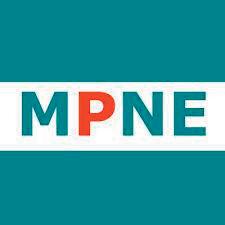


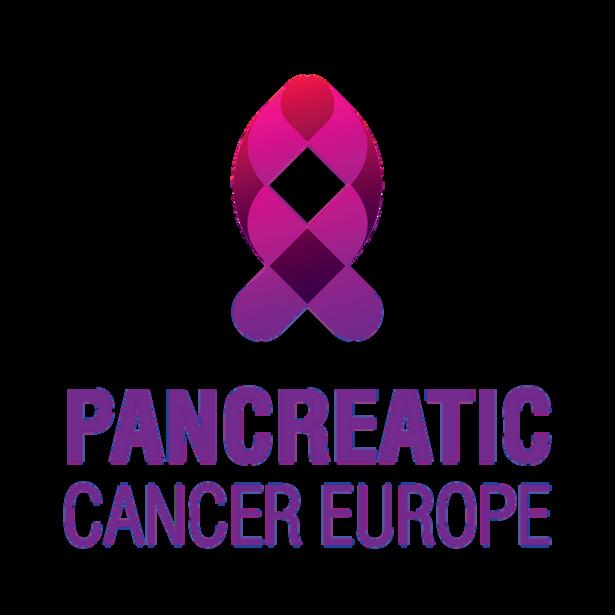
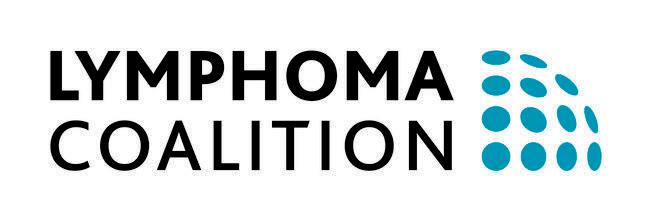
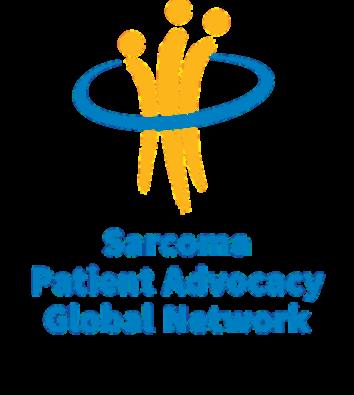
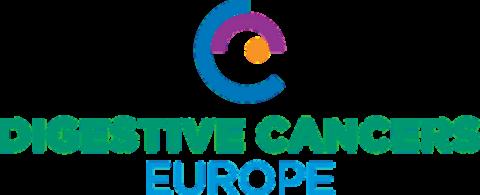

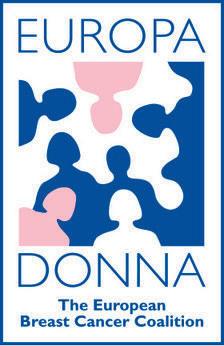

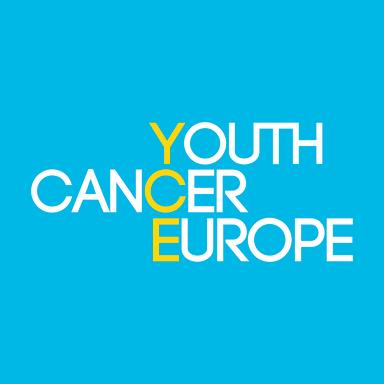
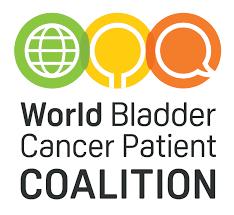
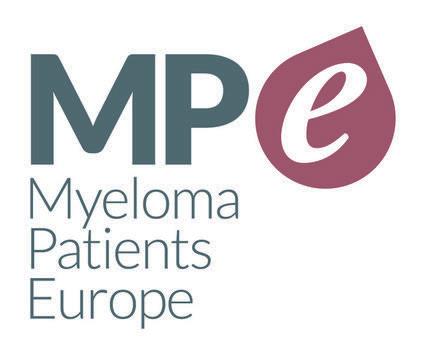
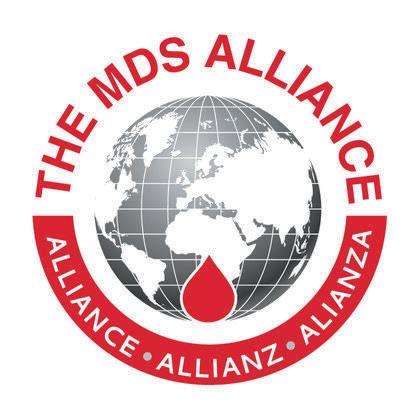
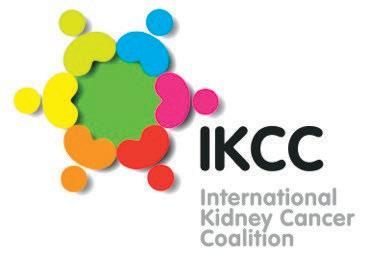
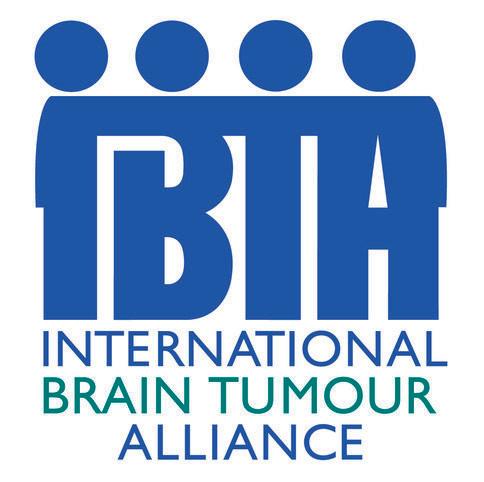
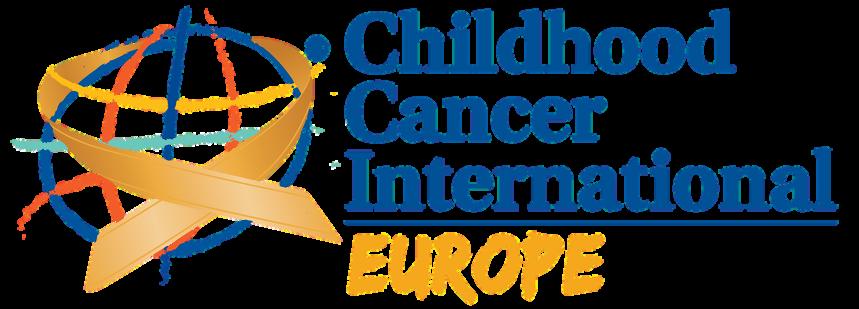
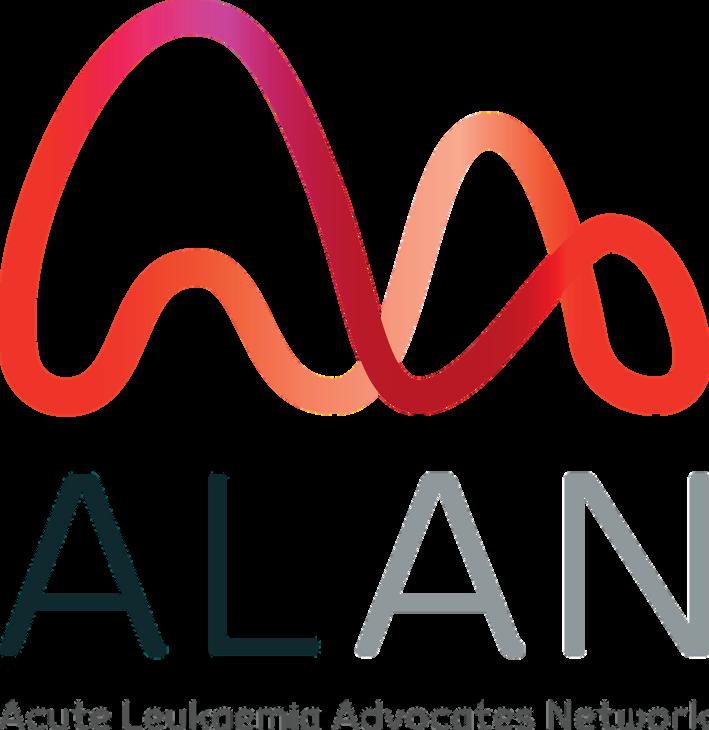

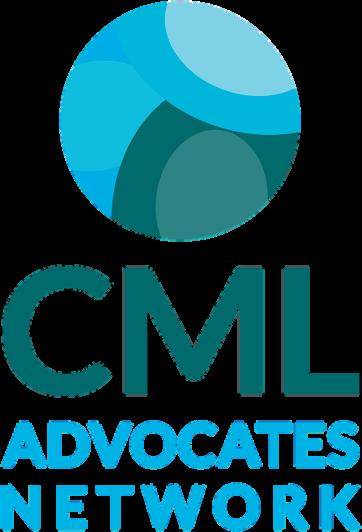







Building Trust, Collaboration, and Alignment to Strengthen Cancer Patient Advocacy Across Europe
























We sincerely thank members of the WECAN Academy programme committee for providing their time to create and design this training event.
Hans Scheurer, WECAN Chair, Myeloma Patients Europe
Jan Geissler, WECAN Past Chair, CML Advocates Network
Alison Mendonca, European Patient Advocacy Institute
Ananda Plate, Myeloma Patients Europe
Anita Kienesberger, Childhood Cancer International
Bettina Ryll, Melanoma Patient Network Europe
Gilliosa Spurrier-Bernard, Melanoma Patient Network Europe
Judith Taylor, Thyroid Cancer Alliance
Kathy Oliver, International Brain Tumour Alliance
Michi Geißler, Sarcoma Patient Advocacy Global Network
Rachel Giles, International Kidney Cancer Coalition
Sara Dederichs, WECAN Academy PM, European Patient Advocacy Institute
Teodora Kolarova, International Neuroendocrine Cancer Alliance
Zack Pemberton-Whiteley, Acute Leukemia Alliance Network
It is a great pleasure to extend a warm welcome to all of you in attendance of the WECAN Academy 2023 capacity building event focused on equipping cancer patient advocates across Europe with knowledge and tools to make a significant impact in the lives of those affected by cancer. In front of us lie 3-4 immersive days filled with profound learning, meaningful connections, and an electrifying atmosphere of shared purpose
There is no shortcut to knowledge. As passionate advocates, you understand the challenges faced by individuals with cancer, their loved ones, and their caretakers We believe that by coming together, we can create a stronger, more effective network of advocates dedicated to improving the cancer journey for all.

The WECAN Academy Programme Committee has curated a diverse program that encompasses a range of topics relevant to the cancer community in the three knowledge pillars: Advocacy Tools and Skills, Healthcare Systems, Policy, and Access, and Research and Data. Patient experts and fellow advocates will share their insights, experiences, and knowledge through interactive workshops, insightful presentations, and engaging discussions. These sessions will cover areas such as the latest advancements in cancer research and treatment, strategies for effective patient advocacy, navigating healthcare systems, and engaging in your cancer patient community.
We understand the importance of networking and collaboration, which is why the WECAN Academy 2023 has returned to a face-to-face training event. Within the next days, opportunities will be provided for you to connect with fellow advocates, exchange ideas, and form lasting connections This event aims to foster a supportive community where experiences are shared, best practices are learned, and collective voices are amplified for improving the lives of all cancer patients.
We sincerely hope that you enjoy your time at the WECAN Academy 2023. Your active participation will contribute to growing the next generation of leading patient advocates

9:30 - 10:30
2023 Face to Face Training Programme
Training Day 1 – 1st July 2023
Leonardo Frankfurt City South Hotel
Welcome Coffee and Registration for the Event
ADVOCACY TOOLS AND SKILLS
Setting the Scene: Advocacy Principles
10:30 – 11:15
RESEARCH AND DATA
11:15 – 12:15
12:15 – 13:30
Hans Scheurer, WECAN Chair, MPE, Jan Geissler, WECAN Past Chair, CMLAN, ALAN, and Sara Dederichs, WECAN Academy PM, EPAI

Drug Development Basics
Maria Dutarte, EUPATI and Jan Geissler, WECAN Past Chair, CMLAN, ALAN
LUNCH
HEALTHCARE SYSTEMS, POLICY, AND ACCESS
Access and Regulatory Basics

13:30 – 14:15
Kate Morgan, MPE
HEALTHCARE SYSTEMS, POLICY, AND ACCESS
Inequalities Basics: Mapping and Understanding Patients’ Rights

14:15 – 15:00
15:00 – 15:30
Dr. Tamás Bereczky, Patvocates
COFFEE BREAK
ADVOCACY TOOLS AND SKILLS
Engaging Your Patient Community
15:30 – 16:00
Anita Kienesberger, CCI
ADVOCACY TOOLS AND SKILLS
Develop Good Content, Presentations and Patient Materials
16:00 – 16:45
Judith Taylor, TCA
ADVOCACY TOOLS AND SKILLS
Setting-up Disease Specific Educational Programmes
16:45 – 17:15
18:00 - 18:30
18:30 – 19:00
19:00 – 23:00
Dr. Tamás Bereczky, Patvocates
Welcome and Registration for Masterclass in the Foyer by the Conference Rooms
Reception in the Foyer by the Conference Rooms
Dinner in the Leonardo Hotel Restaurant
wecanadvocate.eu/wecan-academy-2023-f2f-training-event/

What is it about This session covers...
2023 Face to Face Training Programme
01 July –04 July 2023
Leonardo Frankfurt City South Hotel
Why is it important
Why this session is necessary and where is the impact for the day-to-day work in patient advocacy
Speakers: Maria Dutarte (EUPATI), Jan Geissler (WECAN Past Chair, CMLAN, ALAN)
Speaker contact information: maria.dutarte@eupati.eu, jan@cmladvocates.net

• How does medicines development work – from Phase I to Phase IV
• Why does patient involvement in clinical research make sense?
• The roadmap on patient involvement in clinical research, and meaningful input in clinical trials
• Digging deeper and further trainings – EUPATI resources
• Patient involvement in drug development is crucial for patient advocates as it empowers them to actively contribute to the development of new interventions that address patients’ unmet needs and priorities.
• By engaging patients as partners in research, their unique perspectives, experiences, and preferences can be integrated into study design, implementation, and decision-making processes.
• This active collaboration ensures that research aligns with patient needs, promotes patient-centered outcomes, and enhances the relevance and applicability of findings.
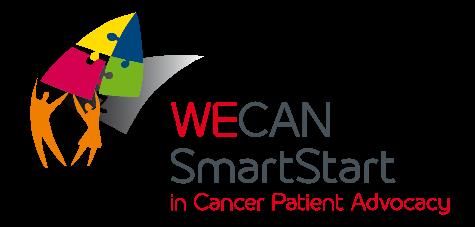
Key take-home message

A brief and to the point explanation of the sessions content and most important learnings
• Patient advocates play a pivotal role in advocating for patient-relevant clinical studies by contributing to the research questions that matter, the design of studies that deliver better and relevant health outcomes.

• The type of input that the patient community can bring in the design, conduct and communication of studies is well described in the “roadmap on patient involvement in clinical R&D”
• Patient advocates need to be informed about the drug development processes to act as research partners on equal eye level. EUPATI provides resources and training for patients and patient representatives
wecanadvocate.eu/wecan-academy-2023-f2f-training-event/
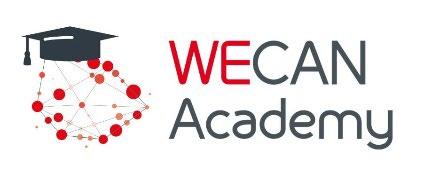
2023 Face to Face Training Programme
01 July –04 July 2023
Leonardo Frankfurt City South Hotel
Additional information on the session topic
EUPATI Toolbox resources:
EUPATI Toolbox: https://toolbox.eupati.eu/
Introductory video to clinical research (by ECRAN project):


https://toolbox.eupati.eu/resources/an-introduction-to-clinical-research/
Phases of clinical development
https://toolbox.eupati.eu/resources/phases-of-clinical-development/
EUPATI Patient Engagement Roadmap: https://toolbox.eupati.eu/resourcesguidance/patient-engagement-roadmap/ (Source: Geissler, J., Ryll, B., Leto di Priolo, S., Uhlenhopp, M.: Improving Patient Involvement in Medicines Research and Development: A Practical Roadmap. Therapeutic Innovation & Regulatory Science 2017.)
EUPATI Patient Expert Training/Open Classroom Resources:
EUPATI Open Classroom : https://learning.eupati.eu/
Getting started- online course: Overview of Medicines Research and Development
https://learning.eupati.eu/course/view.php?id=32
wecanadvocate.eu/wecan-academy-2023-f2f-training-event/

What is it about This session covers...
Speaker: Kate Morgan, Co-Chief Executive, Myeloma Patients Europe


Speaker contact information: morgan@mpeurope.org
An introduction and overview of how cancer medicines are assessed and bought to market in Europe. It will focus on the topics and following questions:

• Basics of where approval and access decisions are made.
• What is medicines regulation and marketing authorization? How is this done in Europe?
• How are national decisions made on access to medicines? (e.g. reimbursement and health technology assessment)
• Why do patient advocates need to know about these processes? How are patients involved in decision-making?
• Potential national access challenges.
Why is it important Why this session is necessary and where is the impact for the day-to-day work in patient advocacy
Medicines regulation, marketing authorization and national access processes are essential to patients, as this is how medicines are made available and accessible to them. As advocates, we want to campaign for the best access to medicines for patients and, to do this, it is important to understand how these processes work and how to get involved in decision-making. There are also inequalities in access to healthcare and medicines across Europe, which patient advocates often aim to address. Knowing how drugs are bought to market in Europe can help advocates understand the root causes of these inequalities and begin to strategize on how to address them.
wecanadvocate.eu/wecan-academy-2023-f2f-training-event/

Key take-home message
A brief and to the point explanation of the sessions content and most important learnings
Participants will gain:
• A general understanding of how the European Medicines Agency assesses the safety and effectiveness of medicines for use in Europe and the role of national regulatory bodies.
• Information on reimbursement and health technology assessment processes (and how this differs to the role of European bodies like the EMA).
• Knowledge on differences between national and European roles in the assessment and approval of medicines.
• Ideas for getting involved in access from a patient advocacy perspective.
• An understanding on current advocacy efforts to raise awareness and reduce inequalities to medicines.

Additional information on the session topic
European Medicines Agency resources on patient and consumer involvement:
https://www.ema.europa.eu/en/partners-networks/patients-consumers/trainingresources-patients-consumers

EUPATI Guidance for Patient Involvement in HTA:
https://toolbox.eupati.eu/resources/guidance-for-patient-involvement-in-hta/
wecanadvocate.eu/wecan-academy-2023-f2f-training-event/

What is it about This session covers...
Speaker: Dr. Tamás Bereczky, Patvocates

Speaker contact information: tamas@patvocates.net
This session covers the basics of patients’ rights and the global legislative framework that enshrines these rights along the principles of Universal Health Coverage. Building on the notion of fundamental human rights, the session explores what patients’ rights entail, how they can be protected and enforced, and the many ways how they are violated thus leading to inequalities and inequity in health.
Some examples for structured and organized patient rights advocacy are presented and discussed.
Why is it important
Why this session is necessary and where is the impact for the day-to-day work in patient advocacy

Key take-home message
A brief and to the point explanation of the sessions content and most important learnings
Additional information on the session topic
Patient advocacy in science and policy is based on the need and demand for safe, equitable and affordable healthcare for everyone who needs it. This universal claim must be based on the principles of human rights and the specific rights of patients. It is thus essential for patient advocates to understand what patients’ rights are and how they can be protected.
Advocating for better health outcomes for all patients is closely associated with advocating for advocating for equality, equity and inclusion in health. This is only possible through adequate awareness and knowledge about patients’ rights.
• The WHO on Universal Health Coverage: https://www.who.int/healthtopics/universal-health-coverage#tab=tab_1
• The European Charter of Patients’ Rights:

https://ec.europa.eu/health/ph_overview/co_operation/mobility/docs/health_ services_co108_en.pdf
• Council of Europe: Human Rights and Health:
https://www.coe.int/en/web/impact-convention-human-rights/human-rightsand-
health#:~:text=Although%20there%20is%20no%20specific,being%20in%20ma ny%20different%20circumstances
• The HIV Justice Network: https://www.hivjustice.net/
wecanadvocate.eu/wecan-academy-2023-f2f-training-event/

What is it about This session covers...

Speaker: Judith Taylor, TCA
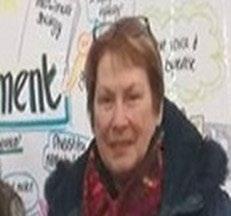
Speaker contact information: Chair, The Thyroid Trust and Co-Director, Thyroid Cancer Alliancejudith.taylor000@btinternet.com
This session will aim to involve participants in a discussion about what patients want to know, what are the key types of information resource, and how to build a reputation for providing evidence-based, trustworthy information, whether it is print or web-based. It will also include tips and tricks for managing layout and text and will touch on health literacy and readability tools. And finally it will discuss how to develop effective presentations using these tools.
Why is it important Why this session is necessary and where is the impact for the day-to-day work in patient advocacy
Key take-home message
A brief and to the point explanation of the sessions content and most important learnings
Communicating with patients and providing them with accurate, accessible and trustworthy information about their cancer and empowering them to communicate with their doctors is a vital part of our role as cancer patient organisations.

By the end of the session participants with little to no experience of developing patient information should be able to start planning how they want to communicate with patients, and hopefully participants whose organisations already provide patient information will have learned some tips and tricks to apply in their own environment.

What is it about This session covers...
Speaker: Dr. Tamás Bereczky, Patvocates

Speaker contact information: tamas@patvocates.net
The foundation for effective patient advocacy is solid knowledge about the given therapeutic area, the disease itself, and the societal, scientific, and ethical environment that the disease and its treatment are situated in. This session covers the basics of patient education and highlights the model of advocate development programs (ADP) that has proven to be successful in combining and bringing across disease specific information and general advocacy related knowledge and skills.
Some examples of ADPs are presented and discussed briefly.
Why is it important
Why this session is necessary and where is the impact for the day-to-day work in patient advocacy
Evidence shows that one efficient way of coping with a diagnosis and living with a chronic or acute diagnosis is empowerment through education. Knowledge will not only help reduce illness-related anxiety and stress, but it can also contribute to the general cause of patient advocacy. There are several models of patient education, and this session presents one of them: advocate development programs (ADP). ADPs provide structured and peer-led knowledge transfer relevant for a specific disease area and for advocacy knowledge and skills in general.
Successful and efficient patient advocacy should be based on a purposeful combination of accounting for the lived experience of the disease as reflected in story-telling practices and evidence-based advocacy. The acquisition of structured knowledge through ADPs will contribute to the healthy and conscious growth of the cohorts of patient experts in different therapeutic areas.

Key take-home message
A brief and to the point explanation of the sessions content and most important learnings
Additional information on the session topic
Sound and evidence-based knowledge is paramount for successful patient advocacy. Disease specific educational programs like APDs provide the necessary knowledge and interactions with other patient advocates to build effective organizational strategies that are future oriented.
• The Advocate Development Program of Myeloma Patients Europe (MPE): https://www.mpeurope.org/advocate-development-programme/

• The EATG Training Academy: https://www.eatgtrainingacademy.com/
wecanadvocate.eu/wecan-academy-2023-f2f-training-event/

2023 Face to Face Training Programme
Training Day 2 – 2nd July 2023
Leonardo Frankfurt City South Hotel
RESEARCH AND DATA
8:30 – 9:30
RESEARCH AND DATA
9:30 – 10:00
10:00 – 10:30
RESEARCH AND DATA
10:30 – 11:30
RESEARCH AND DATA

11:30 – 12:00
12:00 – 13:30
Evidence-Based Advocacy Basics
Zack Pemberton-Whiteley, ALAN
Reading and Interpreting Scientific Data: Part 1

Gilliosa Spurrier-Bernard, MPNE
COFFEE BREAK
Reading and Interpreting Scientific Data: Part 2
Gilliosa Spurrier-Bernard, MPNE
Biobanking from the Patient Perspective


Derick Mitchell, IPOSSI
LUNCH
HEALTHCARE SYSTEMS, POLICY, AND ACCESS
Health Economics Basics: Concepts and Common Problems
13:30 - 14:15
Zack Pemberton-Whiteley, ALAN
HEALTHCARE SYSTEMS, POLICY, AND ACCESS
Healthcare Ecosystems and Stakeholder Management
14:15 - 15:00
15:00 - 15:30
Bettina Ryll, MPNE
COFFEE BREAK
ADVOCACY TOOLS AND SKILLS
NGO Governance: Managing a Crisis in Your Organisation
15:30 - 16:30
Ananda Plate, MPE
ADVOCACY TOOLS AND SKILLS
NGO Marketing and Communications: Media, Social Media, and Communication with Stakeholders
16:30 - 17:30
19:00 – 23:00
Katie Rizvi, YCE
Dinner BBQ in the Leonardo Hotel Biergarten
wecanadvocate.eu/wecan-academy-2023-f2f-training-event/
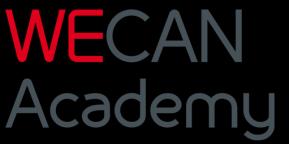
What is it about This session covers...
Why is it important Why this session is necessary and where is the impact for the day-to-day work in patient advocacy
Key take-home message
A brief and to the point explanation of the sessions content and most important learnings
Speaker: Zack Pemberton-Whiteley, ALAN

Speaker contact information:
Chief Executive at Leukaemia Care (UK) Chair of Acute Leukemia Advocates Network (Global) zackpw@leukaemiacare.org.uk or @ZPWLC on Twitter

An introduction to Evidence-Based Advocacy.
The patient community is well placed to advocate for what patients want and need. However, individual opinions are not always the most effective to convince researchers, healthcare providers, or regulatory decision-makers. In order to help healthcare to focus on the true needs of patients and their subpopulations, patient advocates should generate robust evidence and publish it.
What is Evidence-based advocacy (EBA)? Why do we need to use evidence?
Defined by WECAN as the: “Systematic and targeted collection, interpretation, generation and deployment of sound data and information, presented and used in patient advocacy with an objective in mind”

Identifying and understanding your advocacy objective. A breakdown of the key steps of evidence generation. As well as how to use evidence in different situations.
For additional training visit the WECAN Academy, where WECAN hosts special training programs on Evidence-based advocacy (EBA).
wecanadvocate.eu/wecan-academy-2023-f2f-training-event/

What is it about This session covers...
Why is it important Why this session is necessary and where is the impact for the day-to-day work in patient advocacy
Key take-home message
A brief and to the point explanation of the sessions content and most important learnings
Speaker: Gilliosa Spurrier-Bernard, MPNE
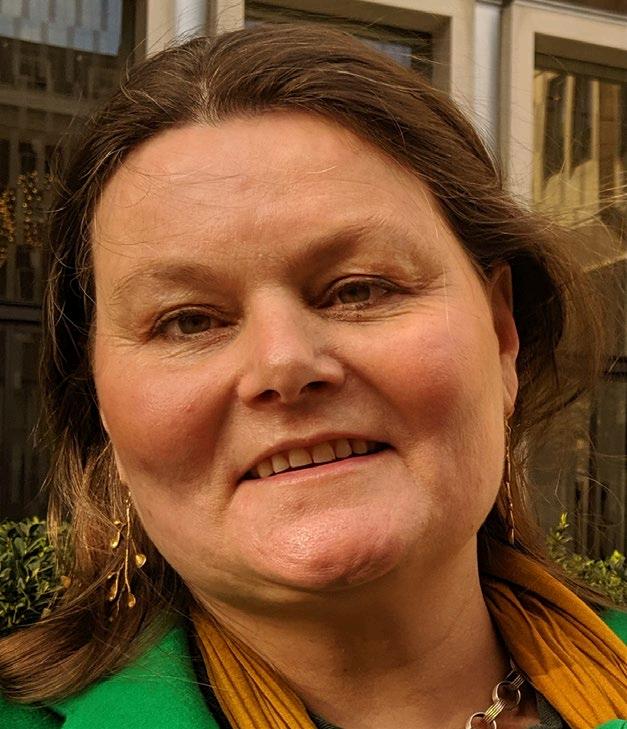
Speaker contact information: gilliosa.spurrier-bernard@mpneurope.org
Sourcing and interpreting the latest science and research, reviewing it for your community, and getting into the practice of reading scientific papers.
Being up to date on the latest research in your cancer and knowing about upcoming treatments and development is vital for the patient community both to make sure patients are receiving optimum treatment and management and for effective advocacy. As Patient Advocates, this falls to us to know what information is useful, how to read and critique the published research and then to disseminate this effectively to your community.
The session is in two parts – Part 1 is an Introduction to where to find good, safe scientific information, what it looks like, how to avoid the pitfalls into pseudoscience and how to disseminate back to your community. Part 2 is a workshop to practice these skills on real Scientific Publications from across Cancer Indications, to start the process of Reading Scientific papers and extracting the pertinent information. It is just Practice
Additional information on the session topic
References:
• https://www.mpneurope.org/post/16-52-knowledge-is-protection-part-1
• https://www.mpneurope.org/post/10-52-how-to-find-the-resources-youneed-and-why-you-already-have-the-tool-and-it-s-not-a-list
• https://researchoutreach.org/articles/v2a2-tool-promote-patient-agencyeffective-patient-information/
• https://aacrjournals.org/cancerdiscovery/article/12/1/26/675613/TheStruggle-against-Cancer-Misinformation


• https://ctep.cancer.gov/protocoldevelopment/electronic_applications/docs/ ctcae_v5_quick_reference_5x7.pdf
wecanadvocate.eu/wecan-academy-2023-f2f-training-event/

What is it about This session covers...
Speaker: Derick Mitchell, PhD, IPPOSI
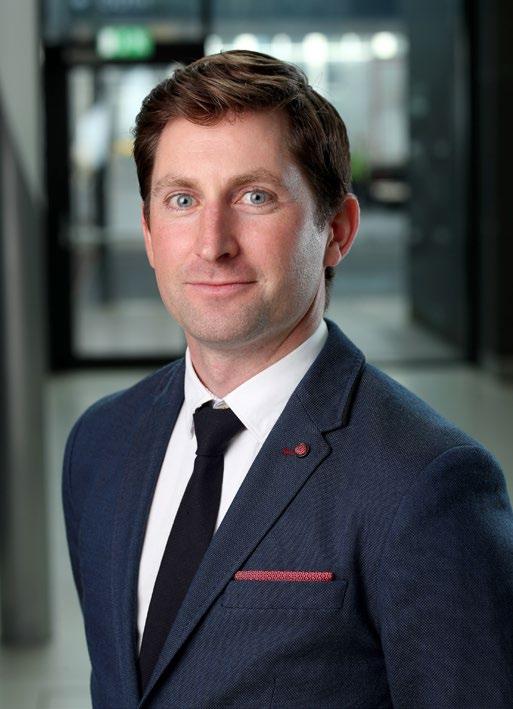
Speaker contact information: IPPOSI, 77 Camden St. Lower, Dublin D08XE80, IRELAND
• What is a biobank and why should patient advocates care about biobanks?

• Examples of patient and public involvement (PPI) in biobanking practice and research from biobanks all over the globe
• As biobanks in general are evolving from the stand-alone, proprietary model to more networked, harmonized models, there is a significant opportunity to assess the extent of PPI across all biobanks and to include the PPI perspective in international initiatives of biobanking harmonisation like BBMRI-ERIC, ESBB and ISBER.
Why is it important
• Biobanks are collections of donations of biological material (DNA, cells, tissue etc.) and related data which are very valuable for research into human diseases. A variety of biobanks exist for example within hospitals, research institutes, pharmaceutical companies and patient organisations.
• The role of patients in biobanking is changing from being seen simply as donors, to actual collaborators in the design, development and the running of biobanks.
• In this session, we will provide a number of examples of patients acting as partners at the heart of biobanking, where their voice and perspective is being seen and used as a valuable resource for the biobank.
Key take-home message
A brief and to the point explanation of the sessions content and most important learnings
• Biobanks and biobanking research plays an increasingly important role in healthcare, research and delivery as health systems become more patientcentred and medicine becomes more personalised.
• There is growing acceptance and appreciation of the value that patients, patient advocacy organisations and the public can bring as stakeholders in biobanking practice and research.

• Therefore, the importance of active, early and sustained engagement and involvement of patient and public representatives in biobanks will become increasingly relevant.
wecanadvocate.eu/wecan-academy-2023-f2f-training-event/

What is it about This session covers...
Why is it important
Why this session is necessary and where is the impact for the day-to-day work in patient advocacy
A brief and to the point explanation of the sessions content and most important learnings
Speaker: Zack Pemberton-Whiteley, ALAN
Speaker contact information:
Chief Executive at Leukaemia Care (UK) Chair of Acute Leukemia Advocates Network (Global) zackpw@leukaemiacare.org.uk or @ZPWLC on Twitter
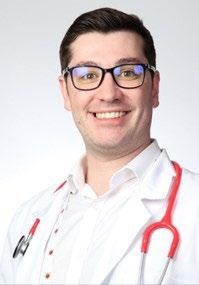


An introduction to health economics – for advocates, not economists. Focusing on breaking down some of the key concepts and highlighting some common problems that can prevent drugs from being reimbursed.
Patient advocates are increasingly being involved in access decisions. Those decisions are often highly dependent on pricing and health economics. To fully engage in discussions, we need to understand the context of the decisions being made, which requires at least a basic understanding of health economics.
What is a fair price for a medicine? How do find balance between a price that is affordable to healthcare systems, with providing incentives to invest in innovation and new medicines?
Current reimbursement systems have significant issues. Not all drugs are assessed in the same way. Some situations have specific challenges – such as combination drugs, drugs for rare conditions, drugs used in multiple indications – which can make it more difficult to secure reimbursement. In some rare examples, a drug might not even be cost effective if given away for free, a clear example of system failure.
By understanding the basics of health economics, patient advocates can be more involved in access discussions – for individual treatments, and wider change within the health system.
wecanadvocate.eu/wecan-academy-2023-f2f-training-event/

Speaker: Bettina Ryll, MPNE

Speaker contact information: bettina.ryll@mpneurope.org
This session will a) introduce the healthcare ecosystem and its stakeholders as a) complex adaptive system, b) reflect on the implications for us as patient advocates as one stakeholder group within the system and c) look at risks and opportunities when engaging with other stakeholder communities.
Healthcare systems are complex adaptive systems composed of many different stakeholders, e.g. physicians, patients, insurances, policy makers, hospital administrations, the commercial sector with pharmaceuticals, diagnostics and devices, regulators, HTA etc. Every stakeholder group, including patients, has legitimate interests that at parts overlap with the interests of other stakeholder groups. Many problems faced by cancer patients are complex rather than complicated, both at the problem level but also at the organisational level where no single party fully owns the problem and solutions can only be found in collaboration and re-alignment. The pentahelix is often evoked when talking about multi-stakeholder collaborations, but the academia, public sector, commercial sector and civil society often rely on a neutral fifth party as enabling convenor and catalyst, a role that patient organisations can assume.
Understanding the underlying nature of the healthcare ecosystem and its behaviours allows to devise strategies that will work with instead of against the system, dramatically increasing chances for success.
A brief and to the point explanation of the sessions content and most important learnings
• Failure to understand the healthcare ecosystem in its complexity means that change measures are unlikely to succeed
• Awareness of overlapping and non-overlapping interests as well as of respective constraints and limitations is essential to formulate win/win/win solutions, the only way for a complex adaptive system to evolve
• Understanding stakeholder groups' interests, concerns and constraints protects against co-option and being taken advantage of
• The ultimate purpose of healthcare is to serve patients; with this, patients have a unique convening power to facilitate cooperation, collaboration and progress between diverse stakeholder groups


wecanadvocate.eu/wecan-academy-2023-f2f-training-event/

Why this session is necessary and where is the impact for the day-to-day work in patient advocacy
Additional information on the session topic
Complex versus complicated
Complex problems involve too many unknowns and too many interrelated factors to reduce to rules and processes.'
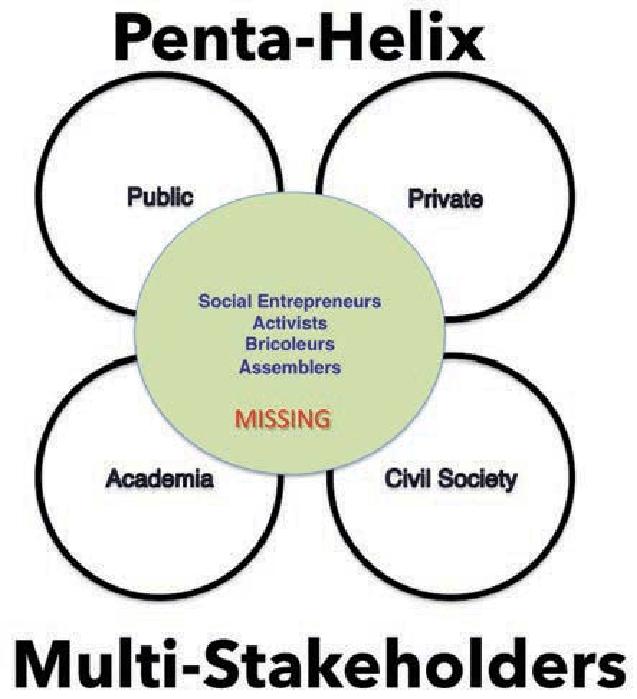

https://sloanreview.mit.edu/article/the-critical-difference-between-complex-andcomplicated/
7 differences between complex and complicated
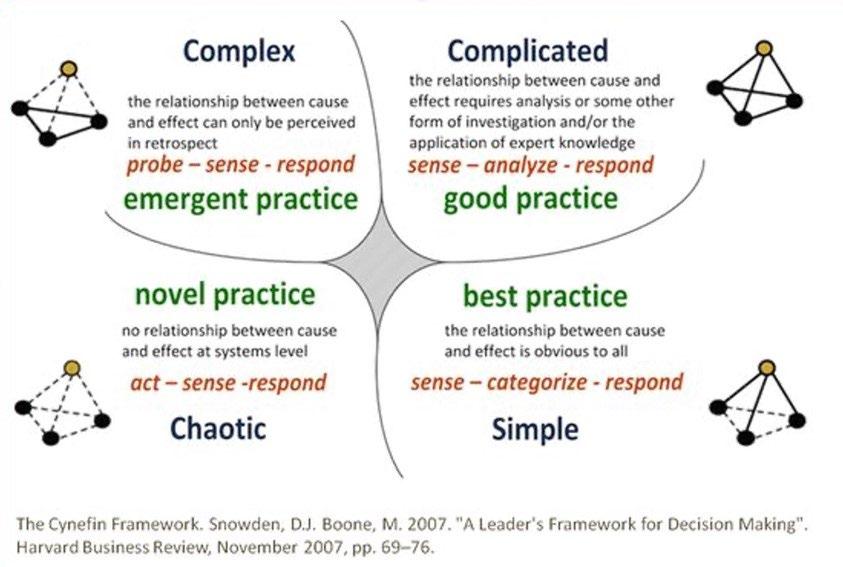
https://sonjablignaut.medium.com/7-differences-between-complex-andcomplicated-fa44e0844606
Some further thinking: https://thecynefin.co/liminal-cynefin/ Pentahelix
https://www.researchgate.net/publication/318815983_Beyond_Smart_and_Data -Driven_City-Regions_Rethinking_Stakeholder-Helixes_Strategies
wecanadvocate.eu/wecan-academy-2023-f2f-training-event/


What is it about This session covers...
NGO Governance: Managing a Crisis in Your Community (or the art of preventing knives in your advocate back)

Speaker:
Ananda Plate, Vice President, Myeloma Patients Europe, WECAN Past Chair and WECAN Coordination Team Speaker contact information: plate@mpeurope.org

• Things that can (and regularly do) go wrong in patient organisations.
• Preventing crisis in patient organisations.
• Crisis as an opportunity of organisational growth.
• Learning from mistakes, prevent them from happening again.
• De-escalating and getting back on track.
Why is it important
Why this session is necessary and where is the impact for the day-to-day work in patient advocacy
A mission driven community might believe that investing energy into developing good governance rules is a waste of time. However, it might be one of the best investments for a patient organisation.
Most of us go into cancer patient advocacy with a strong mission. Many of us may have had a personal experience. For example, someone we deeply care about might have received a cancer diagnosis; helping a friend or a family member navigate/fight the health system proves difficult; or we might have lost a loved one way too early. Many find our way into patient advocacy with feelings of curiosity, anger, fear or sadness. We are driven by good intentions to change the status quo, or by the wish to prevent others from experiencing something similar.

An informal group of well-aligned patients and carers may soon formalise into a patient organisation. Being totally aligned in friendship and a shared mission, as well as full of energy to help others and the urge of getting things done, the establishment of good governance rules seems like a total waste of time or unnecessary bureaucracy. Why invest into something like this when everything is going so well?
This session will cover the importance of investing into governance in times when friendship and alignment are strong, as agreeing to governance rules will never be easier than then. These rules will be critical at times of disagreement and conflict, as they arrive in any NGO sooner or later, for example, when new board members bring new expectations or dissent, or when priorities of individuals change.
wecanadvocate.eu/wecan-academy-2023-f2f-training-event/

A brief and to the point explanation of the sessions content and most important learnings

While governance rules may currently seem like a waste of time and unnecessary bureaucracy, they can ultimately save a patient organisation from internal divisions and potential dissolution in its first and subsequent crisis
However, not every crisis can be prevented. Moreover, a well-managed crisis may help the organisation grow into the next stage, turning into an opportunity of growth and maturation. When that happens, there are ways to de-escalate and get back on track to continue focusing on the patients you serve.
Either way, solid governance rules will lead the way. This is why this session emphasises that investing in governance during times of unity is a proactive measure to ensure stability and resilience in the face of future challenges.
• Good intentions do not prevent crisis: No matter how mission-driven we are, good intentions do not prevent bad things from happening to a patient organisation -good governance rules do.
• Develop good governance rules: Do yourself and your community a favor by investing time and energy into developing solid governance rules around your mission, vision and goals.
• Governance rules prevent/help manage a crisis: Sometimes good governance will not prevent bad things from happening. However, “bad things” become easier to manage with good governance rules in place.
• Share your learnings with the community: We, the cancer patient community, need to speak more openly about our own mistakes. Helping others prevent or navigate what you went through will help us grow as a community.


• Learn from your own mistakes: We should not feel ashamed of going through a crisis, but proud to learn from them and use them to grow.
• Learn from others: We need to be more open to learning from what other communities and organisations go through by avoiding the attitude of “this will never happen to us”.
• Stay focused during- / get back on track after a crisis: One of the most important things after or while managing a crisis in your patient organisation is staying or getting back on track after a muddy battle. Internal fights eat up a lot of time and energy while external rumours/opinions can be very distracting. Try to avoid the distraction. Instead, focus on your mission and on the patient community you serve.
• Use crisis to grow: Crisis might be a legitimate cry of some individuals for change in the organisation. You may use certain hostile or unconformable phases in your organisation to grow the organisation into the next level. Be open to change.
What is it about This session covers...
Why is it important
Why this session is necessary and where is the impact for the day-to-day work in patient advocacy
Speaker: Katie Rizvi, CEO and co-Founder of Youth Cancer Europe, add founder of Little People Association in Romania
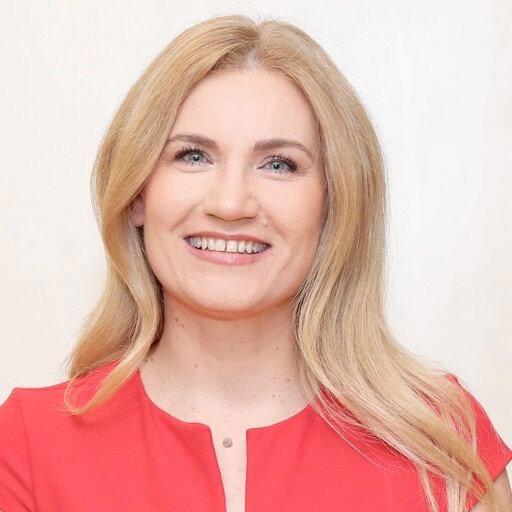
Speaker contact information: katie@youthcancereurope.org
This session will be focused on policy-work, advocacy-powered communication and most importantly, stakeholder engagement that enables patient organisations to promote their mission, raise awareness about their cause, and attract support from various stakeholders.

In the realm of healthcare, NGOs play a vital role in supporting patients and advocating for their rights. While their work extends far beyond the boundaries of marketing and communications, it is essential to recognise the tremendous impact that strategic outreach efforts can have on patients. From providing access to information and support networks to empowering patients and advocating for their needs, NGO marketing and communications are pivotal in enhancing the overall well-being and experience of patients.
NGO marketing and communications have emerged as powerful tools in enhancing the patient experience and promoting positive health outcomes. By providing access to information, raising awareness of support networks, advocating for patient rights, offering patient education, and nurturing emotional support, NGOs empower patients to take control of their healthcare journey. These efforts not only improve individual patient experiences but also contribute to a more patient-centered healthcare system. The importance of NGO marketing and communications for patients cannot be overstated, as they have the potential to transform lives and foster a healthier, more empowered society.
Key take-home message
A brief and to the point explanation of the sessions content and most important learnings
Participants will gain insights into:
● Effective use of media opportunities for your patient community goals

● Branding, identity
● Preparing an interview for media (podcast, radio, tv etc.)
● Newsletters, use of website, patient stories, providing relevant info, being 'on top' of the news around all relevant developments for patients
Building a communication strategy should not be overlooked. By effectively conveying unmet patient needs and engaging with various stakeholders, organisations can advance the interests and well-being of patients, while driving positive change in healthcare systems.
wecanadvocate.eu/wecan-academy-2023-f2f-training-event/

RESEARCH AND DATA
8:30 – 9:30
RESEARCH AND DATA
9:30 – 10:00
10:00 – 10:30
RESEARCH AND DATA
10:30 – 11:15
RESEARCH AND DATA
11:15 – 12:15
12:15 – 13:30
2023 Face to Face Training Programme
Training Day 3 – 3rd July 2023
Leonardo Frankfurt City South Hotel
How Do We Ensure Patient-Centricity in Clinical Trials?

Bettina Ryll, MPNE and Rachel Giles, IKCC
Jam Session on Hot Topics in Oncology
Rachel Giles, IKCC and Bettina Ryll, MPNE
COFFEE BREAK
Patient Reported Outcomes and Other Patient-Relevant Measures and Endpoints
Tamás Ágh, Syreon
Patient Reported Outcomes in Oncology Studies: Intercurrent Events
Silène ten Seldam, Elektra Papadopoulos, Madeline Pe, Ahu Alanya, SISAQOL-IMI
LUNCH
HEALTHCARE SYSTEMS, POLICY, AND ACCESS

Health Economics Advanced: Patient Input into Health Technology Assessment

13:30 - 15:00
Neil Bertelsen, HTAi
Snowball Fight and Farewell for SmartStart, including Coffee Break
15:00 - 15:45
Ananda Plate, MPE and Sara Dederichs, WECAN Academy PM, EPAI

ADVOCACY TOOLS AND SKILLS
Financial Sustainability of Your Organisation
15:45 - 16:30
Jan Geissler, WECAN Past Chair, CMLAN, ALAN

ADVOCACY TOOLS AND SKILLS
Not being the Victim of Hidden Agendas
16:30 - 17:30
19:00 - 23:00
Natacha Bolaños, LC
Dinner at the "Oberschweinstiege" Restaurant
wecanadvocate.eu/wecan-academy-2023-f2f-training-event/
2023 Face to Face Training Programme
01 July –04 July 2023
Leonardo Frankfurt City South Hotel

Speaker: Bettina Ryll, MPNE and Rachel Giles, IKCC (both MD, PhD)

What is it about This session covers...
Speaker contact information: bettina.ryll@mpneurope.org, rgiles@ikcc.org, bettina.ryll@mpneurope.org
In most cases, cancer patients join clinical trials to optimise their chances to survive. Clinical trial designs therefore directly affect a person's chances to survive the trial as well as their disease. Further, trial design affects down-stream decision-making and with that, access for future patients. Often the interests of the patients on the trial are in conflict with those coming after them- patientcentric clinical trial designs therefore should optimise a trial participant's chances to survive AND rapid access to successful treatments further downstream.

This session will look into design factors - such as randomisation, blinding, translational research, inclusion and exclusion criteria- and how these affect patient populations on and off-trial.
We will share experiences from our communities where we successfully altered the originally planned design of clinical trial and discuss which other activities we should engage in to move clinical trial designs overall towards a more patientcentric future.

Also, as therapies are moving towards earlier stages, how to think about patient selection to avoid over-treatment, appropriate intermediate end points and the need for long-term follow-up, the burden of care and how to anticipate not only acute but also long-term toxicity.
wecanadvocate.eu/wecan-academy-2023-f2f-training-event/

take-home message
A
2023
01 July –04 July 2023
Clinical trials are important treatment options for cancer patients as soon as standard of care does not exist or has been exhausted. Clinical trial designs therefore need to be good for both the patients on the trial, e.g. limiting exposure to inferior comparators, as well as those outside the trial, e.g. anticipating challenges with regulatory approval, HTA and reimbursement.

Patient advocates are increasingly involved in clinical trial design and patient communities directly affect trial recruitment and retention.
Understanding which elements of trial design are critical and how to influence them effectively are therefore important steps towards patient-centric clinical trials.
• Understand potential conflicts between today's and tomorrow's patients¨'

• Reflect on the differences between clinical trials in the advanced versus an earlier stage of disease
Additional
information on the session topic

What is it about This session covers...
Why is it important
Why this session is necessary and where is the impact for the day-to-day work in patient advocacy
Key take-home message
A brief and to the point explanation of the sessions content and most important learnings
Speakers: Rachel Giles, IKCC and Bettina Ryll, MPNE (both MD, PhD)

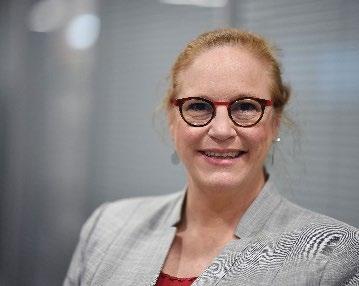
Speakers contact information: rgiles@ikcc.org, bettina.ryll@mpneurope.org
A smorgasbord of Just-A-Minute (JAM) flashes of important new topics across all oncology fields
• Horizon-building for your disease area
• What are new approaches or technological advances to prepare for?
• Need to prepare for changes in regulation; where do we miss appropriate regulation?
We don’t know yet! But we will have whirlwind discussions of (in alphabetical order):
Topics:
• Cancer Metabolism
• Cellular Therapies
• Combination Therapies
• Drug Resistance
• Emerging Targets and First Disclosures
• Immune Ecosystems
• IVDR
Additional information on the session topic
• Liquid Biopsies
• MCED- Multi-Cancer-Early Detection diagnostics


• Microbiomes
• Precision Medicine
• Theragnostics
• The Tumor Microenvironment
This session links with the session 'How to Influence the Research Agenda and Get Involved in External Research Projects' as Horizon scanning and need assessments are the basis for a valid research strategy that then in turn informs research-related activities.
wecanadvocate.eu/wecan-academy-2023-f2f-training-event/

Speaker:
Tamás Ágh, Syreon Research Institute
The session will be focused on patient-reported outcomes (PROs) and other patient-relevant measures. Its main objective is to provide participants with a comprehensive understanding of patient-relevant measures, including different types of PROs, various measurement methodologies, their significance, and the challenges they present in both clinical trials and clinical practice settings.

PROs provide valuable insights into the impact of a disease and its treatment on patients' lives, capturing their experiences, functional abilities, and health-related quality of life. These measures complement clinical outcomes by adding the patient's voice, which may be as important as clinical indicators. However, a meaningful measurement of PROs in clinical trials and clinical practice is still an emerging field. Challenges include the lack of meaningful PRO instruments or their inadequate utilization, hindering the accurate assessment of patient experiences, disease burden, and treatment effects. By incorporating PROs as endpoints in clinical trials, we can facilitate regulatory decision-making, guide treatment choices, and inform guideline development.
Key take-home message
A brief and to the point explanation of the sessions content and most important learnings
Participants will gain insights into:
• The differences between PROs, measurements of PROs and patient-reported experiences (PROMS, PREMS)
• The difference between quality of life and health related quality of life
• The proper measurement of PROs by exploring various types of PRO tools, including generic, symptom-specific and disease-specific measures
• Innovative approaches to collecting PRO data (e.g. ePRO)
• Practical examples of PRO utilization in both clinical trials and clinical practice
• The importance of PROs to patient advocates

wecanadvocate.eu/wecan-academy-2023-f2f-training-event/

Why this session is necessary and where is the impact for the day-to-day work in patient advocacy
What is it about
This session covers...


Speakers:
Silène ten Seldam, Elektra Papadopoulos, Madeline Pe, Ahu Alanya, SISAQoL-IMI
Speaker contact information: tenseldam@mpeurope.org
The session is delivered on behalf of SISAQOL-IMI, a project that aims to make sure patient-reported outcomes (PROs) are designed, analysed, and reported in the same way across clinical trials to ensure that the patient experience of a treatment is reflected as accurately as possible.

The session will focus on issues researchers face with patient-reported outcomes (PROs) in cancer clinical trials. You will learn about what is needed to put PROs into practice in oncology studies (design, analysis, reporting). You will also learn what intercurrent events are, why it is important to understand them and what patient advocates should look for when reviewing clinical trial protocols and study results. Ultimately, this session will provide you with the knowledge and tools to provide more critical feedback when reviewing protocols.
Why is it important
Why this session is necessary and where is the impact for the day-to-day work in patient advocacy
Many patients and advocates have been involved with reviewing clinical trial protocols, and the value of this is being recognised more broadly by industry, researchers, and other stakeholders. As the advocacy community continues to push for earlier involvement, you may be involved in the design of clinical trials during their initial development. Therefore, it is important to understand topics like intercurrent events, how differences in clinical trial design can result in different outcomes and how to provide constructive feedback. This session will focus in particular on issues for PROs. Ensuring PROs are evaluated and reported in a consistent manner across cancer clinical trials and in line with the research questions means that the impact that treatment has on a patient’s quality of life will be better captured and communicated to stakeholders to support fair and informed decision making.
wecanadvocate.eu/wecan-academy-2023-f2f-training-event/

A brief and to the point explanation of the sessions content and most important learnings
Participants will gain insights into:
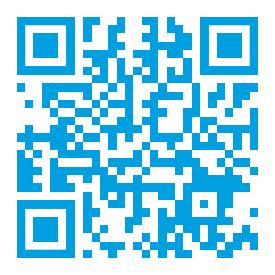

• What intercurrent events are and why they are important
• Why understanding the elements of PRO collection, analysis and reporting is critical
• What questions you should consider when reviewing clinical trial protocols
This communication reflects the author’s view and neither IMI nor the European Union, EFPIA, or any other Associated partners are responsible for any use that may be made of the information contained therein. The SISAQOL-IMI Project has received funding from the Innovative Health Initiative 2 joint undertaking under grant agreement No 945052. This Joint Undertaking receives support from the European Union’s Horizon 2020 research and innovation programme and EFPIA.


wecanadvocate.eu/wecan-academy-2023-f2f-training-event/


What is it about This session covers...
Speaker: Neil Bertelsen, HTAi

Why is it important Why this session is necessary and where is the impact for the day-to-day work in patient advocacy


Key take-home message
A brief and to the point explanation of the sessions content and most important learnings
The importance of patient involvement and patient evidence in health technology assessment (HTA). The key evidence points that HTA are looking to the patient community to deliver and the focus areas that the advocate community should consider.
Feedback from HTA bodies has shown that while patient advocates devote much effort to input into HTA, there is a tendency to provide information that is not relevant for the decision making process. This session will take a step back, focus on the decision process and provide guidance on how to target advocate input.
HTA needs the input of patients and patient advocates in order to make the best possible recommendations. Good quality patient input is focused on the issues that only the patient community can bring. By focusing our input on the decision step, we can make sure that we are being as effective as possible in our input.
This session will dispel a few myths that still persist today, and take a pragmatic approach to creating and presenting the evidence needed to effectively input into HTA.
wecanadvocate.eu/wecan-academy-2023-f2f-training-event/

2023 Face to Face Training Programme
01 July –04 July 2023
Leonardo Frankfurt City South Hotel
Speakers: Jan Geissler, WECAN Past Chair, CMLAN, ALAN

Speaker contact information: jan@cmladvocates.net
What is it about This session covers...
Why is it important
Why this session is necessary and where is the impact for the day-to-day work in patient advocacy
• Fundraising for patient organisations: Basic principles

• Identification and solicitation of funding: The fundraising cycle
• Different types of funding of
• The importance of transparency
• Financial sustainability is the water your organisation sails on. Simple principles on financial management and fundraising can help you weather any storm.
• Knowing simple principles of financial planning and controlling, evaluation and transparency will increase the potential to diversify your organisation’s funding sources.
• They also help you to reduce risks in terms of liquidity problems, lack of longterm sustainability, or loss of credibility.
Key take-home message
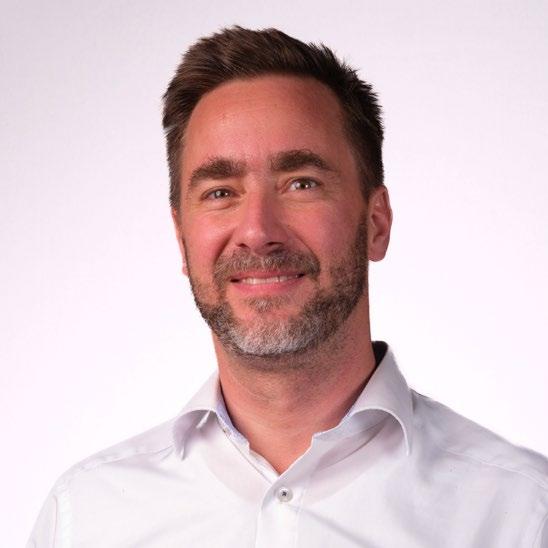
A brief and to the point explanation of the sessions content and most important learnings
• Fundraising and financial management is not rocket science, as long as you take time to plan, implement and monitor your finances.
• Follow a simple fundraising cycle
• Identify different types of funding and funding sources for your organization to decrease dependency of one
• Transparency is the currency of your patient organization
• You should be sober when doing financial management!
wecanadvocate.eu/wecan-academy-2023-f2f-training-event/


RESEARCH AND DATA
8:30 – 9:30
RESEARCH AND DATA
9:30 – 10:00
10:00 – 10:30
RESEARCH AND DATA

10:30 – 12:00
12:00 – 13:30
2023 Face to Face Training Programme
Training Day 4 – 4th July 2023
Leonardo Frankfurt City South Hotel
Evidence-Based Advocacy Advanced: Setting-up Research Projects, How to Gather and Use Patient Data; Spotlight on New Technologies
Zack Pemberton-Whiteley, ALAN
European Health Data Space that Works for Patients


Gilliosa Spurrier-Bernard, MPNE
COFFEE BREAK
How to Influence the Research Agenda and Get Involved in External Research Projects
Bettina Ryll, MPNE
LUNCH
HEALTHCARE SYSTEMS, POLICY, AND ACCESS
Inequalities Advanced: Tackling and Addressing Inequalities
13:30 - 14:30
14:30 - 15:30
15:45 - 16:00
Neil Bertelsen, HTAi
WECANHub Networking and Poster Session
Farewell and Departures for Everyone
wecanadvocate.eu/wecan-academy-2023-f2f-training-event/

What is it about This session covers...
Why is it important Why this session is necessary and where is the impact for the day-to-day work in patient advocacy
Key take-home message
A brief and to the point explanation of the sessions content and most important learnings
Speaker: Zack Pemberton-Whiteley, ALAN
Speaker contact information:
Chief Executive at Leukaemia Care (UK) Chair of Acute Leukemia Advocates Network (Global) zackpw@leukaemiacare.org.uk or @ZPWLC on Twitter
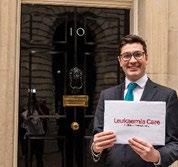


A deep dive into Evidence-Based Advocacy – how to set up evidence generation projects and how to use patient data for advocacy.
In order to help all aspects of healthcare to focus on the true needs of patients and their subpopulations, patient advocates should generate robust evidence and publish it. We know that Evidence-based advocacy (EBA) is increasing, with more and more organisations generating and publishing evidence. But that process is often not well targeted, planned or strategic.
A breakdown of the key steps of evidence generation – from survey design, to data analysis – with top tips and common problems to avoid.
We are advocates, not academics. Evidence-based advocacy (EBA) should be done with a clear advocacy purpose in mind. The focus should be on the impact you want to have, which guides the evidence you need to generate.
This session aims to help guide you to be more effective in your EBA work. If you don’t already experience in Evidence-based advocacy (EBA), it is recommended to visit the WECAN Academy, where WECAN hosts an “Evidence-Based Advocacy: Fundamentals” training course.
wecanadvocate.eu/wecan-academy-2023-f2f-training-event/

What is it about This session covers...
Why is it important Why this session is necessary and where is the impact for the day-to-day work in patient advocacy
Key take-home message
A brief and to the point explanation of the sessions content and most important learnings
Additional information on the session topic
Speaker: Gilliosa Spurrier-Bernard, MPNE

Speaker contact information: gilliosa.spurrier-bernard@mpneurope.org
Brief history of Health Data and Data Privacy in Europe, What is coming next, Why we should have an opinion, and where we could be involved.
Data is the fastest increasing resource. Data works best when it flows. Everyone has a need for Health data, but we need to make sure that what it is used for helps patients. Access to our own health data and primary use for starters, and influence and monitoring of where it is used for secondary use.
Health data comes from patients and citizens : we want it used, safely for the right things. The value for us all of FAIR principles in health data is that firstly citizens have easy access to their own health records and the relevant data created from them, and that their secondary use helps them and their communities.
References:
• www.tehdas.eu
• https://apps.who.int/iris/bitstream/handle/10665/352268/Eurohealth-27-215-17-eng.pdf
• https://www.futurelearn.com/info/courses/protecting-healthdata/0/steps/39603
• https://edps.europa.eu/data-protection/data-protection/legislation/historygeneral-data-protection-regulation_en
• https://www.ouvrirlascience.fr/wp-content/uploads/2022/12/europeanresearch-data-landscape-KI0422164ENN.pdf
• https://download2.eurordis.org/EHDS_european_health_data_space_2022.p df
• https://ec.europa.eu/digital-buildingblocks/wikis/display/DIGITAL/2022/10/11/Data+sharing+through+eDelivery +in+the+HealthData@EU
• https://www.mpneurope.org/post/sync-not-sink-our-data-we-need-morecancer-patient-agency-in-health-data-use


wecanadvocate.eu/wecan-academy-2023-f2f-training-event/

What is it about This session covers...
Speaker: Bettina Ryll, MPNE

Speaker contact information: bettina.ryll@mpneurope.org
The session will be a joint rapid walk- through
1. how one identifies unmet research needs
2. how one builds a comprehensive strategy around a concrete need
3. tactical choices within an action portfolio to increase the likelihood of success with limited resources
4. leveraging your network's expertise, what to consider when participating in an EU project and how to get started
We will work together through the concrete example of a problem we all sharetherapy resistance. The purpose of the session is to demonstrate a concrete approach rather than specific details- this would be impossible considering the limited time- frame.
Why is it important
Why this session is necessary and where is the impact for the day-to-day work in patient advocacy
Key take-home message
A brief and to the point explanation of the sessions content and most important learnings
Opportunities for patient engagement in research currently multiply but are not created equal. Choosing strategically and optimally leveraging one own's community's resources and expertise therefore becomes critical to avoid becoming stuck in little impactful activities and to ensure fastest possible progress for patients.
• Learn how to systematically identify the research needs of your community
• Develop a strategic approach to research engagement beyond individual research projects, e.g. engagement with research funders, research institutions and research policy
• Identify the unique strengths of your community and how to leverage them for research-related activities
• Engagement is a 2-way street: how to build mutually beneficial research alliances
• Discuss how we as WECAN community can optimise research participation across all cancers


wecanadvocate.eu/wecan-academy-2023-f2f-training-event/

Reading
• From good to great: What patients can do for your medical research. Full text free access https://rdcu.be/b8caJ

• Why before how- deliberations before engaging in research:
https://www.mpneurope.org/post/28-52-why-before-how-patientinvolvement-in-research
• Return on engagement- what's in it for you?:
https://www.mpneurope.org/post/24-52-return-on-engagement
• Passive vs consequential involvement:
https://www.mpneurope.org/post/19-52-patient-involvement-passive-activeor-consequential

wecanadvocate.eu/wecan-academy-2023-f2f-training-event/


session covers...
A practical workshop to explore ways of reaching underserved communities, identifying gaps and working with communities outside of traditional patient advocacy to reach new patient communities.
Why is it important
Why this session is necessary and where is the impact for the day-to-day work in patient advocacy
A brief and to the point explanation of the sessions content and most important learnings
Decision makers including healthcare systems have renewed their focus on making sure healthcare is reaching underserved communities. Patient advocacy groups are in a prime position to support this work, and yet some of these underserved groups are poorly represented in our advocacy communities. We need to take a fresh look at how we expand our base.
A practical session without slides that walks through:
• Mapping your current constituent profile
• Identifying gaps that need to be filled
• Working through methods and approaches to fill the gaps
• Partnering beyond patient advocacy to reach those that are still underrepresented


• Building evidence to show that the views you express are reflective (or not) of the underserved populations
wecanadvocate.eu/wecan-academy-2023-f2f-training-event/



Thank You!
This event is hosted by the European Patient Advocacy Institute gUG on behalf of WECAN Funding was obtained from the following funders Supporters had no role in the development of this programme
Abbvie
Amgen
Daiichi-Sankyo
Gilead
Illumina
Incyte
Ipsen
Jazz Pharmaceuticals
Merck Group
Novartis
Pfizer
Roche
Takeda
WECAN ACADEMY 2023 PROGRAMME